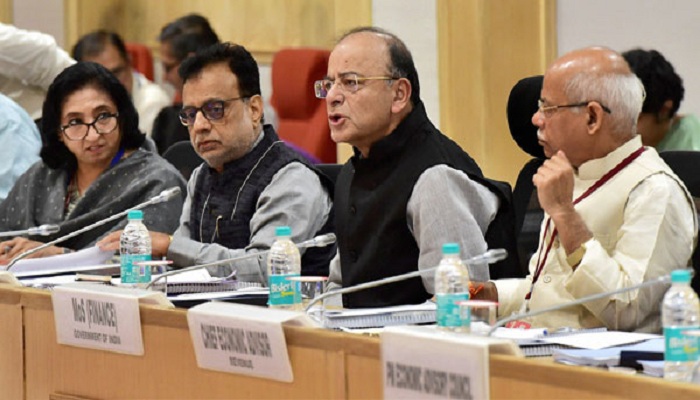
Finance Minister Arun Jaitley announced a slew of measures to reduce the burden and stress the GST implementation has brought to exporters and small businesses.
Announcing the measures, Jaitley said, “After almost three months since GST roll out, it is time to deliberate on its effect on various trades and the transition.”
The government pushed for the measures in the wake of outcry from small businesses and exporters becoming a political tightrope for the ruling NDA. BJP’s own assessment had indicated that the troubles faced by small businesses and other sections of the economy was dictating a negative perception against the government.
Earlier this week, PM Modi had indicated that the government was ready to push for relief measures to reduce the problems faced by small businesses in complying with GST rules.
RELIEF FOR EXPORTERS
The finance ministry, last week, held a series of meetings with groups of exporters to understand their problems. The key feedback received was that post GST, exporters started facing problems in organising working capital.
To address this problem, the GST Council in its meeting decided to start the refund process for July by October 10. The second tranche of refund for August will start by October 18.
For the remaining months of the financial year, exporters will operate under an exempted category paying a nominal GST of 0.1 per cent. By next April, the government will kick start a new digital e-wallet system for every exporter. The government will deposit a notional amount in the e-wallets in advance and refund will be adjusted against that amount later.
FOR SMALL BUSINESSES
The GST council on Friday announced measures which can be divided under two broad heads- relaxation in compliance and offering a choice to end the need for compliance.
Studying the stress points in the GST regime with 72 lakh taxpayers having migrated to the new tax system, the Council identified that 25-26 lakh GST assessees are new taxpayers. Jaitley said that a majority of them have a turnover of less than Rs 1 crore and the compliance expected from them exceeds the tax input from them.
In a major move, small businesses can now file returns on a quarterly basis compared to the monthly cycle which is currently practiced. This can be called a paradigm shift in the GST regime because when the the rules were set, the idea was to create tough compliance norms to check leakages in taxes. But now facing public ire and political fire, the government has decided to line the tax regime with softeners.
Businesses with annual turnover of up to Rs 1.5 crore can now file quarterly income returns. People under this category form 90 per cent of the vase. The monthly to quarterly switch over for filing of returns for small businesses will kick off from October 1. But they will be asked to file monthly return for the July-Septembr period.
The GST Council also put its stamp on raising the limit of composition scheme to Rs 1 crore from current Rs 75 lakh for small businesses. With this tweak, small businesses can file returns on a quarterly basis. So far, only one sixth or 15 lakh of the 90 lakh registered entities have chosen the composition scheme. The government expects improvement in the figure after the change. A group of ministers has been tasked to study the modalities for extending the composition scheme on inter-state sales and to rationalise taxes on restaurants.
The composition scheme is a less paperwork scheme. Those trading in goods under this scheme have to file 1 per cent tax. For manufacturers, the rate is 2 per cent and 5 per cent for suppliers of food or drinks (without alcohol). Though those opting for the composite scheme can claim no input tax credit and tax payers can only indulge is intra-state supply (in the same state) of goods, the schemes comes with a hassle free no three-stage return filing process.
But not all can opt for the scheme.
Suppliers of services other than manufacturer of ice cream, pan masala, or tobacco; casual taxable people or a non-resident taxable person; restaurant related services; and businesses which supply goods through an e-commerce operators cannot get into this category.
REVISED RATES
Meanwhile, Jaitley said the Council also decided to cut GST rate on 27 items. GST on sliced dried mango, Gujarati delicacy khakra, unbranded namkeen and unbranded Ayurvedic medicine was slashed from 12 per cent to 5 per cent.
There is good news for mid-day meal schemes as well. Food packets for school children under Integrated Child Development Scheme (ICDS) will be taxed at 5 per cent instead of 12.
In a signal to textile traders in Gujarat, the tax rate on man-made yarn has been fixed at 12 per cent, down from 18 per cent.
Tax on stones used for flooring (non-marble and granite), diesel engine parts, pump parts and stationery items has been reduced to 18 per cent from 28 per cent.
There is good news on the services front too. Jobs like imitation, food items, zari and printing items will be taxed st 5 per cent and not 12 per cent. Service providers with less than 20 lakh revenue have be added to the GST exempt list.

Post Your Comments